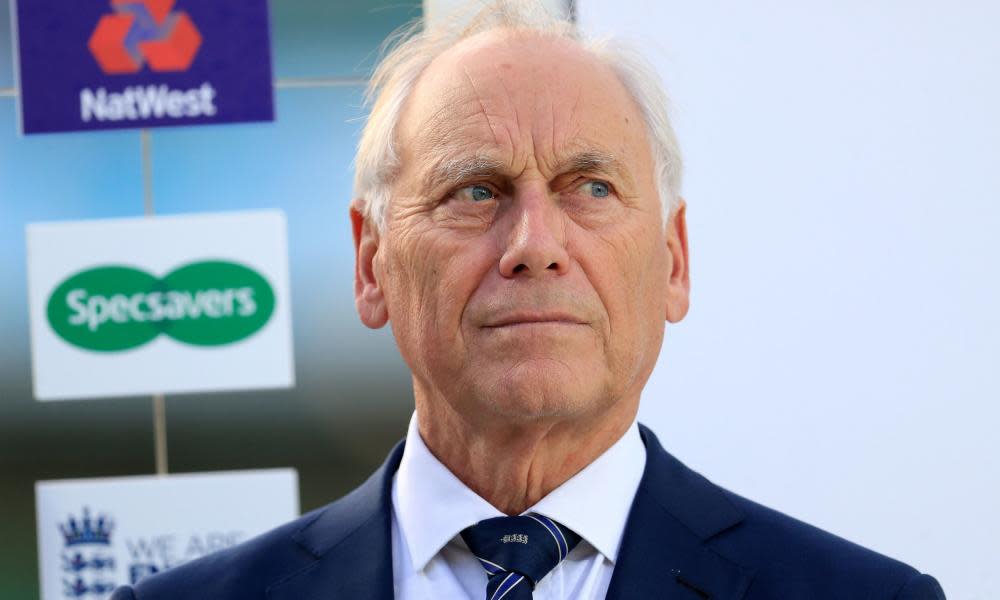Colin Graves ends bid to become next ICC chairman due to lack of support

Colin Graves has been thwarted in his bid to become the next chair of the International Cricket Council after failing to attract enough support.
The 72-year-old, who ended five years as chair of the England and Wales Cricket Board last month, appeared favourite for the role when Shashank Manohar stepped down in July, and was said to have the all-important backing of India.
Related: England ready to return a favour and play in Pakistan after 15 years away | Vic Marks
But Graves was not among the nominees when the deadline passed over the weekend, with the position now set to be contested by Singapore’s Imran Khwaja, who is currently serving as the interim ICC chair, and Greg Barclay of New Zealand.
A report by the Times of India suggests Barclay – an outsider up to now but a director of New Zealand Cricket since 2012 – has the backing of India, England and Australia but will require 11 votes out of the 16 ICC board members with voting rights to prevail.
An election is slated for December but the process may yet see one candidate drop out beforehand should the other secure enough support in the interim, thus allowing the board to present its new chair as the unanimous choice.
Not only must the new chair guide the sport through the challenges of Covid-19, they must also address a growing schism over how revenues are shared, as well as the frequency of global tournaments such as the 50-over and Twenty20 World Cups.
Related: Heather Knight on Big Bash quarantine: 'It is a little bit like a prison, I won’t lie'
There are moves within the ICC to increase the number of events, thus helping the so-called smaller nations who rely heavily on the central funding. Graves, when outlining his vision, said he intended to “recut the pot” to make it more equitable.
However England, Australia and India still earn the bulk of their money through bilateral cricket – as well as the hugely profitable Indian Premier League in the case of the latter – and are thus reluctant to give up more space in an already packed calendar.


